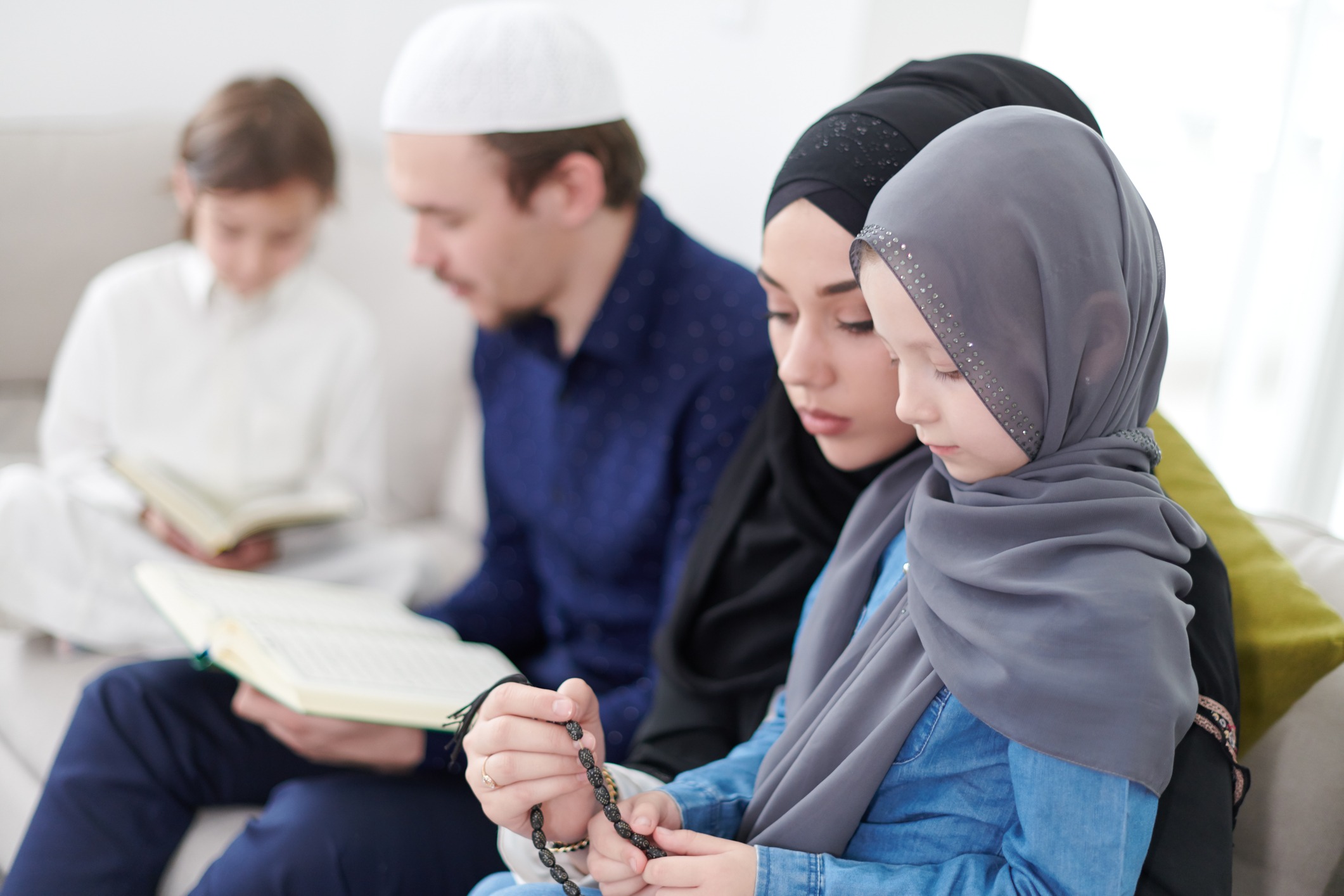-
Islamic knowledge, education and training
- How prayer and spirituality form the basis of Islamic education.
- The role of parents in teaching prayer and spirituality to their children.
- The importance of learning about religious values in Islamic education.
- The influence of prayer and spirituality on character development in children in an Islamic family.
- How you as a parent can help your children make a deeper spiritual connection with God through prayer and meditation
“Prayer and spirituality are the key to a harmonious Islamic education.”
Prayer and spirituality play an important role in Islamic education. Prayer is one of the five pillars of Islam, making it an essential part of Muslim life. Spirituality also plays an important role in Islamic education, as it helps children strengthen their spiritual side and help them better understand their beliefs. In this article we will delve deeper into how prayer and spirituality are used in Islamic education, as well as what kind of influence they can have on children. We will also discuss how parents can help their children become more involved in prayer and spirituality as part of their daily lives.
How prayer and spirituality form the basis of Islamic education.
Prayer and spirituality form the basis of Islamic education. Prayer is an important part of a Muslim's life as it helps them strengthen their bond with God. The prayer is usually performed five times a day, during which Muslims turn to Allah and beg Him for help and mercy. Muslims believe that praying regularly brings them closer to God and promotes their spiritual growth.
Spirituality also plays an important role in Islamic education. Muslims believe that they should strive for spiritual enlightenment through meditation, reflection and study of religious texts such as the Quran. They try to align their minds with God's will through prayers, fasting, and other spiritual practices that help them strengthen their relationship with God. These practices also help them to find inner balance in life by making themselves aware of God's presence in everything they do.
The combination of prayer and spirituality is central to Islamic education as a way to encourage children to adopt good moral values that help them exercise good citizenship in their community or in association with other cultures or religions. Through regular prayer and meditation practices, children can learn how to communicate respectfully with other people; how to avoid conflicts; how to show love for each other; how to show tolerance for different cultures or religions; and so forth .
The role of parents in teaching prayer and spirituality to their children.
Parents play an important role in teaching prayer and spirituality to their children. They can help their children connect more deeply with God by teaching them how to pray, engaging them in spiritual activities such as church services and other religious ceremonies, and teaching them about the values of their faith. Parents can also help raise their children's awareness of spirituality by talking to them about spiritual topics, selecting books on spirituality for them, or sitting together for prayer.
It is important that parents remain involved in the process of teaching prayer and spirituality to their children. By being actively involved in things such as sitting together for prayer or attending religious ceremonies, parents show that they believe in what they are trying to convey to their children. This can be helpful in creating a real connection between the family and God. It is also important that parents listen to what their children want to know when it comes to spiritual topics; this helps to build respectful contact with each other around spiritual education.
The importance of learning about religious values in Islamic education.
Learning about religious values is an important part of Islamic education. These values are intended to help children strengthen their faith and teach them how to live their lives according to the principles of Islam. By learning religious values, children can develop a stronger bond with God, which helps them make good choices in their daily lives.
Religious values are usually learned through stories from the Quran and other holy books, such as Hadith stories (narrative traditions). The narrative style makes it easy for children to understand the message behind each story and apply it to their everyday situations. Symbolism, such as imagery or metaphors, is also often used to help understand abstract conceptual ideas.
In addition, parents can also take advantage of various activities to convey religious values to their children. This can range from discussions about ethical dilemmas to games focused on moral lessons or spiritual growth. Parents can also set an example by demonstrating good behavior towards extraterrestrials and treating other cultures respectfully. In this way they can help them create awareness in their children about what is right in different situations and how to act according to God's will.
In short, through educational activities, carefully selected stories and simple symbolism can be easily implemented in the daily life of a family with the aim of effectively transmitting religious values to children in Islamic families.
The influence of prayer and spirituality on character development in children in an Islamic family.
Prayer and spirituality play an important role in the character development of children in an Islamic family. Prayer is a fundamental part of the Islamic faith, making it important for parents to teach their children how to pray. Teaching prayer not only creates spiritual awareness, but also discipline and responsibility.
In addition, spirituality helps develop good character traits such as respect, tolerance and empathy. Children who grow up with spiritual values are more likely to treat other people with respect and respect their opinions. They will also show more understanding of other cultures or religions than the ones they experience at home. In addition, spiritual values help them to better understand and manage their emotions, resulting in better social skills.
Finally, spirituality helps create self-esteem in children from Muslim families by giving them the opportunity to grow towards God through prayer and meditation. This process allows the child to feel more connected to God, resulting in inner peace and confidence that he or she can achieve what he or she wants to achieve if he or she works hard for something that is important to him or her.
How you as a parent can help your children make a deeper spiritual connection with God through prayer and meditation
As a parent, you can help your children make a deeper spiritual connection with God through prayer and meditation. Start teaching your children the basics of prayer and meditation. Let them know that prayer is a way to express their gratitude, desires, and needs to God. Explain that meditation is a way to bring silence into their lives, making them more open to God's voice in their lives.
Give your children the space to experiment with different forms of prayer and meditation. Encourage them to be creative in coming up with new ways to pray or meditate, such as walking meditations or writing meditations. Also let them know that there may be current events in their lives that they can pray about or reflect on during the mediation exercise.
It is important that parents remain involved in their children's spiritual process by sitting together for prayers before meals, sitting together for daily devotions, or attending church regularly as a family activity. It can also be useful for parents to make agreements with their children about how often they should pray or practice mediation techniques and at what times each week. So as a parent you can help your child truly connect and develop deeper spiritual relationships with God through prayer and meditation. The importance of prayer and spirituality in Islamic education is undeniable. It is an essential part of education because it helps children strengthen their spiritual side and teaches them to treat others with respect. Through prayer and spirituality, children also learn how to tackle their problems, which helps them make good choices in life. In addition, prayers and spirituality also help strengthen the bond between children and their families, which can positively impact their overall well-being.







